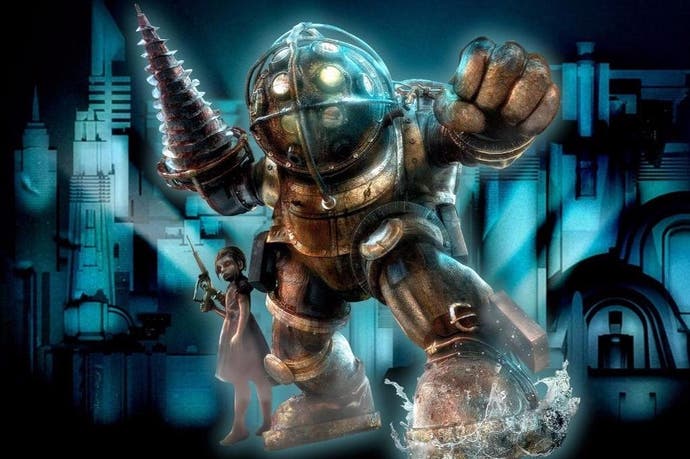BioShock back-compat on Xbox One: can it hit 60fps?
Original Xbox 360 code shows massive improvement on Microsoft's latest console.
Quite possibly the most impressive technological achievement in the console space last year was Xbox One backward compatibility, a virtual machine that somehow - miraculously - managed to run Xbox 360 titles on Microsoft's latest console. Progress has continued on this brilliant feature, to the point where we reckon it has a good shout in staking a claim as the most impressive console technological achievement of 2016 too. We've demonstrated time and again this year how Xbox One is now running Xbox 360 titles faster and more smoothly than original hardware - but this week's release of the BioShock trilogy highlights just how much faster it can be.
So what's so special about the BioShock titles in particular? It's simple. The clear majority of console games operate with a frame-rate cap of some description - and it's usually set at 30fps. In these scenarios, Xbox One back-compat can only run the title with more consistent performance than original hardware - a tighter 30fps lock, if you will. However, the BioShock titles are different: tucked away in the menu system is the ability to run with a completely unlocked frame-rate. Not only is the 30fps limit removed, but v-sync is disabled too - meaning that the games are literally pumping out as many frames as the hardware can handle.
One of the features of the Xbox One backward compatibility virtual machine is that tearing is eliminated, so in the case of the BioShock titles, there is a fascinating opportunity here. From a gameplay perspective, we get a completely tear-free experience but more than that, we can get some idea of just how much faster the newer console runs older Xbox 360 titles. After all, if the frame-rate is unlocked on original hardware, it will be on Xbox One too (limited only by the 60fps limit added by v-sync). And to put it simply, the results are often brilliant. Turn off the original BioShock's frame-rate cap and there's an often explosive boost to performance on Xbox One, to the point where the title spends much of its duration running at 60fps with no tearing whatsoever - something that simply never happened on original Xbox 360 hardware.
And there are certain test areas that demonstrate just how much additional GPU performance the Xbox One is bringing to the table here. In the initial journey down to Rapture in the first BioShock, the entire on-rails engine-driven cut-scene runs flawlessly on the new console, handing in a completely locked 60 frames per second. Meanwhile, on original hardware, the frame-rate fluctuates significantly, hitting a minimum of just 36fps. And of course, Xbox One's v-sync implementation is capping performance here to 60fps. Were the game running fully unlocked with v-sync disabled like the Xbox 360 version, it would obviously be higher.
And this silky-smooth performance level is why we received so many requests to test BioShock - back-compat isn't just letting us run original Xbox 360 software on Xbox One, it's giving us a night and day improvement, something we've also seen in titles like Call of Duty 2. However, as impressive as it is, it's not flawless. More detailed scenes can see the frame-rate drop significantly, down to 45fps territory - and in this sense, the fluctuations in frame-rate feels similar to Tomb Raider Definitive Edition's unlocked performance on PS4.
And what's clear is that while there are still benefits to running BioShock 2 with the unlocked frame-rate option on Xbox One, the overall performance level is marked lower, and fluctuations in performance be dramatic. It's draw-intensive areas that are worst hit, perhaps suggesting that while the CPU side of the equation is fast enough, it's still a bottleneck in unlocked frame-rate scenarios. To tell the truth, we'd prefer to play BioShock 2 at its standard 30fps lock, such are the jarring shifts in performance. We didn't have a copy of BioShock Infinite to hand, but we'll be testing that early next year, where we fully intend to catch up with the latest back-compat releases, while re-testing the likes of the Gears of Wars titles and Halo Reach. Yes, Microsoft has taken onboard criticism of poorly performing back-compat games and has updated them using the latest, more potent virtual machine implementation.
But as things stand, we're now confident that Microsoft has solved its prior issue of weak CPU performance in back-compat titles, and paired with Xbox One's GPU performance, a technologically brilliant feature is now even better. And with this in mind, we're especially interested in testing both Xbox 360 and indeed Xbox One backward compatibility once the new Scorpio console launches.


